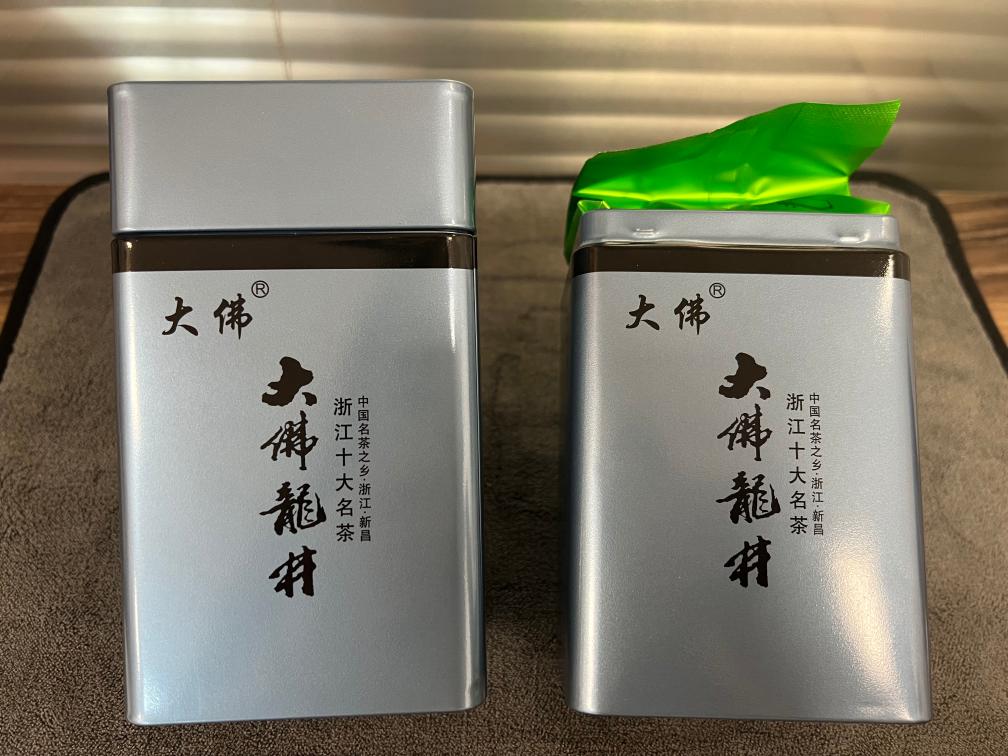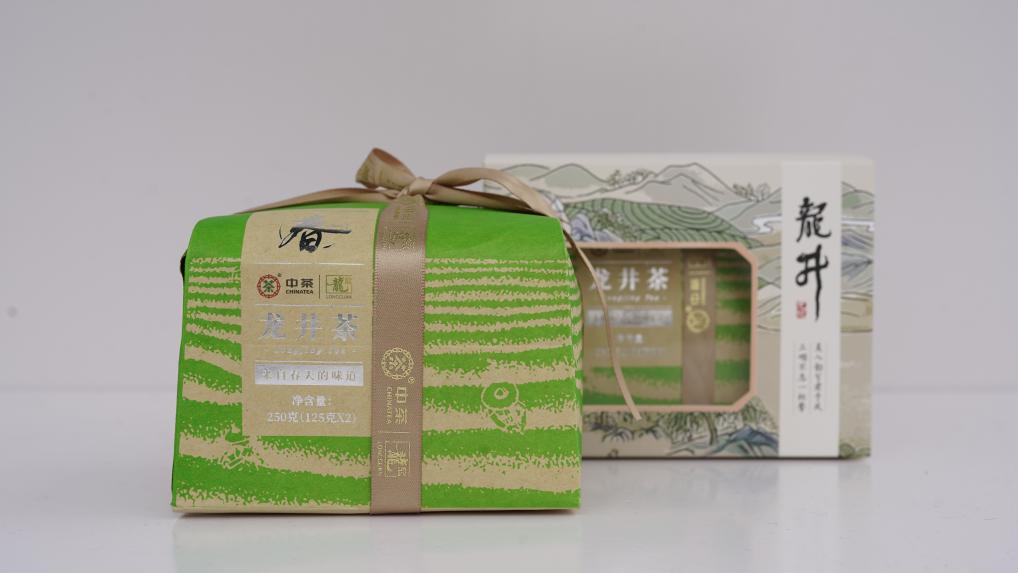The implementation of the new national standard of "slimming" packaging says "no" to excessive packaging of tea!
Xinhua News Agency, Hangzhou, September 1st Title: The implementation of the new national standard of "slimming" packaging says "no" to excessive packaging of tea!
Xinhua News Agency reporter Natalie
The newly revised Food and Cosmetics for Restricting Overpackaging of Commodities (hereinafter referred to as the new national standard) came into effect on September 1, which means that there are new restrictions on the packaging of food and cosmetics, including tea.
The reporter learned that since April this year, various localities have continuously promoted the special treatment of tea over-packaging, and the industry has paid more attention to the problem of over-packaging. After the tea packaging was "lightly packed", the "burden" of tea enterprises was reduced, and consumers were much more affordable.
Say "No" to the over-packaging of tea.
"Two ounces of tea, two pounds of packaging", in the actual sales process of tea products, many merchants often use their brains on tea packaging in order to "create greater economic value", and the resulting over-packaging problem once became a normal state. According to the survey report released by China Consumers Association in March this year, over 80% of consumers are against over-packaging.

The picture shows an over-packaged tea investigated by Hangzhou Municipal Market Supervision Administration in May this year. This tea package with a net content of 50g tea has a void ratio of 72%, which does not meet the new national standard. (Photo courtesy of Hangzhou Municipal Market Supervision Administration)
"Many consumers spend about 150 yuan on buying tea, and some tea packaging costs are 100 yuan." Xu Rongbing, the person in charge of Hangzhou Yuhang Tianlong Tea Co., Ltd., said frankly that some consumers buy tea to give gifts, thinking that the more exquisite the packaging of the gift box, the more decent the gift.
Aiming at the problem of over-packaging, the new national standard clearly stipulates the number of packaging layers, packaging cost and void ratio of 31 kinds of food and 16 kinds of cosmetics, including tea.
"According to the new standard, tea packaging cannot exceed four layers, and the packaging cost is less than or equal to 20% of the overall selling price." Jie Yu, head of the quality inspection team of Hangzhou Municipal Market Supervision Administration, said that the standard also specified the package void ratio in detail according to the net content of a single item in the package. "For example, if the net content of a can of tea is more than 50 grams, the pot of tea will be packed in a box, and the void ratio of this box will be less than or equal to 30%."

On August 29th, the reporter photographed the Zhejiang Xinchang Giant Buddha Longjing packaging in a merchant in Jiangnan tea market. The 125g tea was sealed in an aluminum foil bag in an iron box, which was introduced by the local market supervision department to meet the new national standard. Xinhua News Agency reporter Natalie photo
At the same time, the No.2 revision of the national standard "Restrict the over-packaging of commodities and require food and cosmetics" is seeking opinions from the society, including "reducing the number of packaging layers from no more than four to no more than three" and "reducing the proportion of packaging cost to sales price from 20% to 15%", etc. These adjustments have undergone rigorous market research and demonstration.
"The mainstream packaging of tea products in the market is two-tier and three-tier, and the three-tier packaging can fully meet the necessary functional needs of tea protection, display, storage and transportation." Wei Hong, deputy director of the Department of Standards and Technology Management of the General Administration of Market Supervision, said that the survey found that nearly 90% of the product packaging cost was below 15% of the total cost, and the average packaging cost accounted for 7.9%, so there was room for further reduction.
Since April this year, investigations have been carried out in many places. Up to now, Zhejiang has dispatched 23,000 law enforcement personnel, seized and detained 15,900 illegal packages, and corrected and investigated 548 problems such as excessive packaging of tea; Fujian interviewed local e-commerce 22 times and issued 155 rectification notices; Sichuan carried out 2,705 law enforcement popularization, issued 4,748 public service advertisements against over-packaging, and enterprises signed 1,715 letters of commitment.
"China is a big tea country, and its planting scale, total output and consumption rank first in the world. There are nearly 1.55 million tea production and operation entities in the whole industry. " Shen Weiwei, deputy supervisor of China Tea Circulation Association, said that since the special treatment of tea over-packaging was carried out, the whole industry has attached great importance to the problem of over-packaging, and enterprises’ active rectification has been speeding up.
What new changes have been brought about by the "slimming" of packaging?
What new changes will the implementation of the new national standard of "slimming" packaging bring to the industry, consumers and regulatory authorities?
— — Tea packaging is "going into battle lightly". Jiangnan tea market is the largest tea distribution base in Hangzhou, and tea buyers come here in an endless stream every day. The reporter walked into the market a few days ago and saw that there were all kinds of packaged tea in the shops on the first floor, mostly in bulk, paper packaging, tin can packaging and gift box packaging, and the packaging layers were all within three floors. Open a tea product named "Laoshu Longjing Gift Box". There are two cans of tea in a book-sized paper gift box. According to the local market supervision department, this product meets the requirements of the new national standard.

The number of packaging layers, packaging cost and void ratio of this Longjing tea package meet the requirements of the new national standard. (Photo courtesy of Zhejiang Market Supervision Administration)
— — The "burden" of enterprises is smaller, and consumers are much more affordable. Chen Ruihong, the head of a tea enterprise, believes that the rectification of over-packaging is of great benefit to the high-quality development of the industry. This allows enterprises to return their attention to the quality of tea itself, instead of using packaging to attract consumers and form healthy competition. "We will now integrate more Chinese style elements into tea packaging to make the packaging more cultural."
Liao Changyou, the person in charge of Jiangnan tea market, said that taking Jingshan tea in Yuhang, Hangzhou as an example, the packaging cost used to be 50-60 yuan, but now as long as it is around 20 yuan, the product price will also drop after the packaging price drops.
— — Online and offline joint efforts, supervision to improve energy and efficiency. In view of the characteristics of many e-commerce platforms and active tea trading, the Beijing Municipal Market Supervision Administration concentrated on interviewing platform enterprises such as JD.COM, Meituan and Tik Tok to guide enterprises to strengthen the internal audit of commodity packaging; Relying on the platform economy digital supervision system "Zhejiang Fair Online", Zhejiang Market Supervision Administration established the "Online Monitoring Model of Tea Overpackaging" to monitor 30 e-commerce platforms such as Tmall, JD.COM and Pinduoduo, covering 13,000 online stores and 163,000 product information.
Let the packaging "simple style" fall into practice
Excessive packaging of tea is easy to cause waste of resources and environmental pollution, and many tea gift boxes are difficult to be reused, and are often easily discarded as domestic garbage. The implementation of the new national standard will make low-carbon environmental protection deeply rooted in people’s hearts. Respondents believe that the "simple style" of packaging is not a gust of wind, but a multi-pronged approach should be taken to prevent the problem from rebounding.
Wei Saiming, chairman of the Technical Committee of China Tea Co., Ltd., believes that the new national standard has a very important guiding role in regulating and leading the healthy development of the tea industry, building a resource-saving and environment-friendly society, and accelerating the green and low-carbon transformation.
The reporter learned that Zhejiang issued the "Operational Guidelines for the Banned Catalogue of Tea Overpackaging Network in the Province" to urge the e-commerce platform to strengthen the packaging compliance audit of operators in the platform. For example, Taobao and Tmall have dynamically monitored and evaluated online product compliance and business rectification effect, and banned the sale of 39 kinds of over-packaged tea products.
In Fan Ziwei’s view, the innovation of packaging is also very important. The Federation uses platforms such as packaging industry science and technology awards and R&D centers to promote packaging enterprises to use renewable materials, degradable materials and recyclable materials to develop more environmentally friendly packaging methods.
However, there are still some regulatory difficulties in tea over-packaging. Some consumers will buy tea gift boxes with "exquisite" packaging through workshops and farmers, and regard packaging as "face", and the consumption concept has not completely changed; In order to avoid supervision, some tea operators conduct online transactions through live broadcast, Wechat business and other forms, which is more concealed.
The market supervision departments in Jiangsu, Fujian, Anhui, Sichuan and other places said that in the upcoming Mid-Autumn Festival and National Day, the work arrangements for law enforcement inspection before and during the festival will be made in advance, the circulation links will be closely watched, the management of commodity packaging will be strictly enforced, and administrative law enforcement will be strengthened to continuously consolidate the governance results.